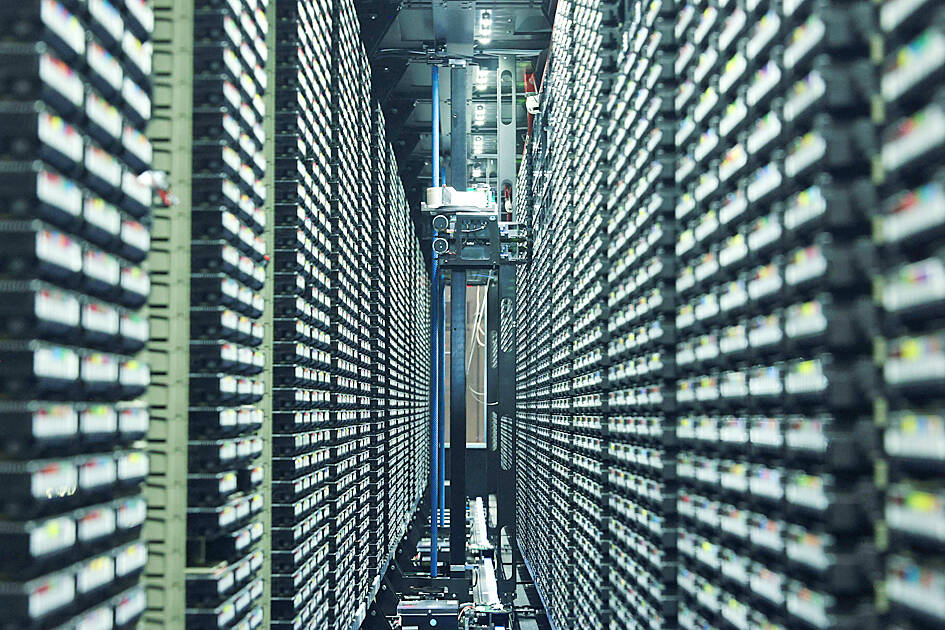AP, BERKELEY, California
A new supercomputer named after a winner of the Nobel Prize in Chemistry is to help power artificial intelligence (AI) technology and scientific discoveries from a perch in the hills above the University of California, Berkeley, US federal officials said on Thursday.
US Secretary of Energy Chris Wright announced the project alongside executives from computer maker Dell Technologies and Nvidia Corp chief executive officer Jensen Huang (黃仁勳).
The new computing system at the Lawrence Berkeley National Laboratory is to be called Doudna after Berkeley professor and biochemist Jennifer Doudna, who won the Nobel Prize in Chemistry in 2020 for her work on the gene-editing technology CRISPR. It is due to switch on next year.
“One of the key use cases will be genomics research,” said Dion Harris, a product executive in Nvidia’s AI and high-performance computing division. “It was basically just a nod to her contributions to the field.”
Dell is contracted with the energy department to build the computer, the latest to be housed at the Berkeley Lab’s National Energy Research Scientific Computing Center. Previous computers there have been named after other Nobel winners: Saul Perlmutter, an astrophysicist, and Gerty Cori, a biochemist.
In a separate report from Bloomberg, US senators Jim Banks and Elizabeth Warren are demanding answers from Huang on Nvidia’s reported plans to open a research facility in Shanghai, saying that the decision “raises significant national security and economic security concerns.”
Banks and Warren were reacting to a Financial Times report that Nvidia is planning to open a research-and-development center in the Chinese city. The newspaper, citing people with knowledge of the matter, said the facility would be used for a potential expansion as well as existing employees, and that the company is advertising to hire AI talent in China.
Nvidia spokesperson Sarah Weinstein disputed the report, saying in an e-mailed statement that the company “is simply leasing a new space for existing employees, who need the room” in the post-COVID-19 return to work.
“The scope of work will remain unchanged,” she added.





